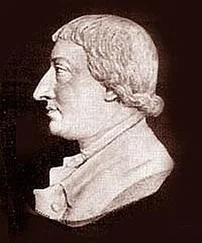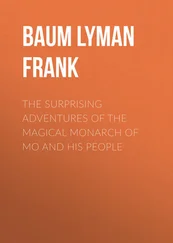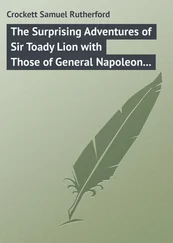Rudolf Raspe - The Surprising Adventures of Baron Munchausen
Здесь есть возможность читать онлайн «Rudolf Raspe - The Surprising Adventures of Baron Munchausen» — ознакомительный отрывок электронной книги совершенно бесплатно, а после прочтения отрывка купить полную версию. В некоторых случаях можно слушать аудио, скачать через торрент в формате fb2 и присутствует краткое содержание. Год выпуска: 2006, Жанр: Юмористическая проза, на английском языке. Описание произведения, (предисловие) а так же отзывы посетителей доступны на портале библиотеки ЛибКат.
- Название:The Surprising Adventures of Baron Munchausen
- Автор:
- Жанр:
- Год:2006
- ISBN:нет данных
- Рейтинг книги:3 / 5. Голосов: 2
-
Избранное:Добавить в избранное
- Отзывы:
-
Ваша оценка:
- 60
- 1
- 2
- 3
- 4
- 5
The Surprising Adventures of Baron Munchausen: краткое содержание, описание и аннотация
Предлагаем к чтению аннотацию, описание, краткое содержание или предисловие (зависит от того, что написал сам автор книги «The Surprising Adventures of Baron Munchausen»). Если вы не нашли необходимую информацию о книге — напишите в комментариях, мы постараемся отыскать её.
The Surprising Adventures of Baron Munchausen — читать онлайн ознакомительный отрывок
Ниже представлен текст книги, разбитый по страницам. Система сохранения места последней прочитанной страницы, позволяет с удобством читать онлайн бесплатно книгу «The Surprising Adventures of Baron Munchausen», без необходимости каждый раз заново искать на чём Вы остановились. Поставьте закладку, и сможете в любой момент перейти на страницу, на которой закончили чтение.
Интервал:
Закладка:
This laborious task completed, Raspe lost no time in applying himself with renewed energy to mineralogical work. It was announced in the Scots Magazine for October 1791 that he had discovered in the extreme north of Scotland, where he had been invited to search for minerals, copper, lead, iron, manganese, and other valuable products of a similar character. From Sutherland he brought specimens of the finest clay, and reported a fine vein of heavy spar and "every symptom of coal." But in Caithness lay the loadstone which had brought Raspe to Scotland. This was no other than Sir John Sinclair of Ulbster, a benevolent gentleman of an ingenious and inquiring disposition, who was anxious to exploit the supposed mineral wealth of his barren Scottish possessions. With him Raspe took up his abode for a considerable time at his spray-beaten castle on the Pentland Firth, and there is a tradition, among members of the family, of Sir John's unfailing appreciation of the wide intelligence and facetious humour of Raspe's conversation. Sinclair had some years previously discovered a small vein of yellow mundick on the moor of Skinnet, four miles from Thurso. The Cornish miners he consulted told him that the mundick was itself of no value, but a good sign of the proximity of other valuable minerals. Mundick, said they, was a good horseman, and always rode on a good load. He now employed Raspe to examine the ground, not designing to mine it himself, but to let it out to other capitalists in return for a royalty, should the investigation justify his hopes. The necessary funds were put at Raspe's disposal, and masses of bright, heavy material were brought to Thurso Castle as a foretaste of what was coming. But when the time came for the fruition of this golden promise, Raspe disappeared, and subsequent inquiries revealed the deplorable fact that these opulent ores had been carefully imported by the mining expert from Cornwall, and planted in the places where they were found. Sir Walter Scott must have had the incident (though not Raspe) in his mind when he created the Dousterswivel of his "Antiquary." As for Raspe, he betook himself to a remote part of the United Kingdom, and had commenced some mining operations in country Donegal, when he was carried off by scarlet fever at Muckross in 1794. Such in brief outline was the career of Rudolph Erich Raspe, scholar, swindler, and undoubted creator of Baron Munchausen.
The merit of Munchausen, as the adult reader will readily perceive, does not reside in its literary style, for Raspe is no exception to the rule that a man never has a style worthy of the name in a language that he did not prattle in. But it is equally obvious that the real and original Munchausen, as Raspe conceived and doubtless intended at one time to develop him, was a delightful personage whom it would be the height of absurdity to designate a mere liar. Unfortunately the task was taken out of his hand and a good character spoiled, like many another, by mere sequel-mongers. Raspe was an impudent scoundrel, and fortunately so; his impudence relieves us of any difficulty in resolving the question,—to whom (if any one) did he owe the original conception of the character whose fame is now so universal.
When Raspe was resident in Göttingen he obtained, in all probability through Gerlach Adolph von Munchausen, the great patron of arts and letters and of Göttingen University, an introduction to Hieronynimus Karl Friedrich von Munchausen, at whose hospitable mansion at Bodenwerder he became an occasional visitor. Hieronynimus, who was born at Bodenwerder on May 11, 1720, was a cadet of what was known as the black line of the house of Rinteln Bodenwerder, and in his youth served as a page in the service of Prince Anton Ulrich of Brunswick. When quite a stripling he obtained a cornetcy in the "Brunswick Regiment" in the Russian service, and on November 27, 1740, he was created a lieutenant by letters patent of the Empress Anna, and served two arduous campaigns against the Turks during the following years. In 1750 he was promoted to be a captain of cuirassiers by the Empress Elizabeth, and about 1760 he retired from the Russian service to live upon his patrimonial estate at Bodenwerder in the congenial society of his wife and his paragon among huntsmen, Rösemeyer, for whose particular benefit he maintained a fine pack of hounds. He kept open house, and loved to divert his guests with stories, not in the braggart vein of Dugald Dalgetty, but so embellished with palpably extravagant lies as to crack with a humour that was all their own. The manner has been appropriated by Artemus Ward and Mark Twain, but it was invented by Munchausen. Now the stories mainly relate to sporting adventures, and it has been asserted by one contemporary of the baron that Munchausen contracted the habit of drawing such a long-bow as a measure of self-defence against his invaluable but loquacious henchman, the worthy Rösemeyer. But it is more probable, as is hinted in the first preface, that Munchausen, being a shrewd man, found the practice a sovereign specific against bores and all other kinds of serious or irrelevant people, while it naturally endeared him to the friends of whom he had no small number.
He told his stories with imperturbable sang froid , in a dry manner, and with perfect naturalness and simplicity. He spoke as a man of the world, without circumlocution; his adventures were numerous and perhaps singular, but only such as might have been expected to happen to a man of so much experience. A smile never traversed his face as he related the least credible of his tales, which the less intimate of his acquaintance began in time to think he meant to be taken seriously. In short, so strangely entertaining were both manner and matter of his narratives, that "Munchausen's Stories" became a by-word among a host of appreciative acquaintance. Among these was Raspe, who years afterwards, when he was starving in London, bethought himself of the incomparable baron. He half remembered some of his sporting stories, and supplemented these by gleanings from his own commonplace book. The result is a curious medley, which testifies clearly to learning and wit, and also to the turning over of musty old books of facetiæ written in execrable Latin.
The story of the Baron's horse being cut in two by the descending portcullis of a besieged town, and the horseman's innocence of the fact until, upon reaching a fountain in the midst of the city, the insatiate thirst of the animal betrayed his deficiency in hind quarters, was probably derived by Raspe from the Facetiæ Bebelianæ of Heinrich Bebel, first published at Strassburgh in 1508.
There it is given as follows: "De Insigni Mendacio. Faber clavicularius quem superius fabrum mendaciorum dixi, narravit se tempore belli, credens suos se subsecuturos equitando ad cujusdam oppidi portas penetrasse: et cum ad portas venisset cataractam turre demissam, equum suum post ephippium discidisse, dimidiatumque reliquisse, atque se media parte equi ad forum usque oppidi equitasse, et caedem non modicam peregisse. Sed cum retrocedere vellet multitudine hostium obrutus, tum demum equum cecidisse seque captum fuisse."
The drinking at the fountain was probably an embellishment of Raspe's own. Many of Bebel's jests were repeated in J. P. Lange's Delicioe Academicoe (Heilbronn, 1665), a section of which was expressly devoted to "Mendacia Ridicula"; but the yarn itself is probably much older than either. Similarly, the quaint legend of the thawing of the horn was told by Castiglione in his Cortegiano , first published in 1528. This is how Castiglione tells it: A merchant of Lucca had travelled to Poland in order to buy furs; but as there was at that time a war with Muscovy, from which country the furs were procured, the Lucchese merchant was directed to the confines of the two countries. On reaching the Borysthenes, which divided Poland and Muscovy, he found that the Muscovite traders remained on their own side of the river from distrust, on account of the state of hostilities. The Muscovites, desirous of being heard across the river announced the prices of their furs in a loud voice; but the cold was so intense that their words were frozen in the air before they could reach the opposite side. Hereupon the Poles lighted a fire in the middle of the river, which was frozen into a solid mass; and in the course of an hour the words which had been frozen up were melted, and fell gently upon the further bank, although the Muscovite traders had already gone away. The prices demanded were, however, so high that the Lucchese merchant returned without making any purchase. A similar idea is utilised by Rabelais in Pantagruel , and by Steele in one of his Tatlers . The story of the cherry tree growing out of the stag's head, again, is given in Lange's book, and the fact that all three tales are of great antiquity is proved by the appearance of counterparts to them in Lady Guest's edition of the Mabinogion . A great number of nugoe canoroe of a perfectly similar type are narrated in the sixteenth century "Travels of the Finkenritter" attributed to Lorenz von Lauterbach.
Читать дальшеИнтервал:
Закладка:
Похожие книги на «The Surprising Adventures of Baron Munchausen»
Представляем Вашему вниманию похожие книги на «The Surprising Adventures of Baron Munchausen» списком для выбора. Мы отобрали схожую по названию и смыслу литературу в надежде предоставить читателям больше вариантов отыскать новые, интересные, ещё непрочитанные произведения.
Обсуждение, отзывы о книге «The Surprising Adventures of Baron Munchausen» и просто собственные мнения читателей. Оставьте ваши комментарии, напишите, что Вы думаете о произведении, его смысле или главных героях. Укажите что конкретно понравилось, а что нет, и почему Вы так считаете.












